Description
Chlorophytum Spider Plant – Nature’s Air Purifier & Indoor Beauty
The Chlorophytum Spider Plant, often simply called the Spider Plant, is one of the most beloved indoor plants worldwide. Famous for its cascading leaves, air-purifying qualities, and effortless care, this resilient plant is perfect for both beginners and seasoned plant lovers. Its ability to produce small plantlets, or “spiderettes,” makes it not just decorative, but also an ever-giving green companion.
🌱 Benefits of the Spider Plant
-
Air Purification
The Spider Plant is one of NASA’s top-recommended air-purifying plants, known to remove harmful toxins like benzene, toluene, and formaldehyde. This makes it ideal for bedrooms, offices, kitchens, and living spaces. -
Low Maintenance
Perfect for beginners or busy individuals, the Spider Plant thrives on neglect. It tolerates low light, irregular watering, and varying indoor conditions. -
High Growth Rate & Propagation
Fast-growing and generous, it produces spiderettes that can easily be replanted to create new plants—perfect for expanding your indoor garden or gifting. -
Aesthetic Appeal
Its long, arching, striped leaves add elegance to any space. It looks equally stunning in hanging baskets, tabletops, or as a lush accent in corners. -
Budget-Friendly & Versatile
Affordable, adaptable, and hardy, the Spider Plant is an excellent choice for homes, offices, classrooms, and even hospitals.
🌿 Spider Plant Care Tips
-
Light: Prefers bright, indirect light, but adapts well to low light. Avoid harsh direct sunlight.
-
Watering: Water when the top inch of soil feels dry. Avoid overwatering to prevent root rot.
-
Soil: Well-draining potting mix works best.
-
Humidity: Enjoys moderate to high humidity. Mist occasionally or use a pebble tray if air is dry.
-
Fertilizer: Lightly fertilize once a month during spring and summer with a balanced fertilizer.
-
Repotting: Repot every 1–2 years or when rootbound.
-
Propagation: Divide spiderettes (baby plants) and replant them to create fuller, bushier plants.
🌱 Placement Ideas for Spider Plants
-
Hanging Baskets: Perfect for showing off cascading leaves.
-
Tabletops & Shelves: Adds greenery to desks, bookshelves, or countertops.
-
Corners & Empty Spaces: Fills dull corners with vibrant foliage.
-
Workspaces: Adds life and freshness to offices and classrooms.
🌿 Additional Tips
-
Pruning: Remove dead or yellowing leaves to keep the plant tidy.
-
Flowering: Mature spider plants produce small white flowers, often followed by spiderettes.
-
Pest Control: Generally resistant but check for mealybugs, spider mites, or aphids. Treat promptly with neem oil or insecticidal soap if needed.
-
Stress-Free Propagation: Simply snip off spiderettes and place them in soil or water until roots develop.
🌱 FAQs
1. Should I remove dead leaves from a Chlorophytum Spider Plant?
Yes, trimming dead or yellow leaves encourages healthy new growth.
2. Do Spider Plants flower?
Yes, mature spider plants produce small white flowers that often lead to baby spiderettes.
3. Is sugar water good for spider plants?
No, sugar water is not recommended. A balanced houseplant fertilizer works best.
4. Why are leaves falling off my spider plant?
This may indicate overwatering, underwatering, or low humidity. Adjust care accordingly.
5. How can I tell if my spider plant is overwatered?
Signs include yellowing leaves, root rot, and soggy soil. Always allow the topsoil to dry before watering.

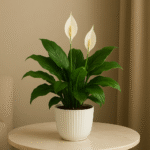
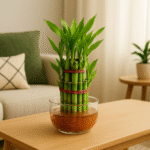
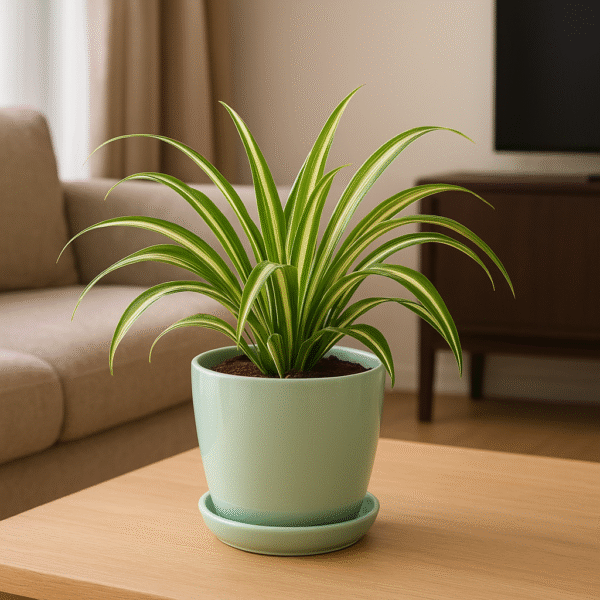

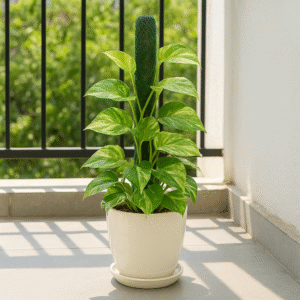
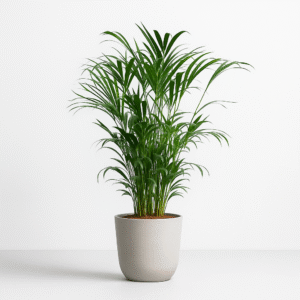
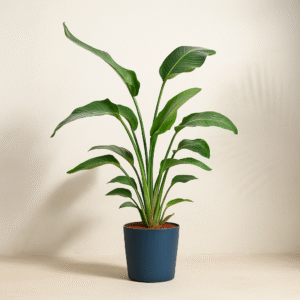
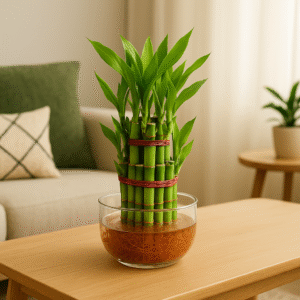
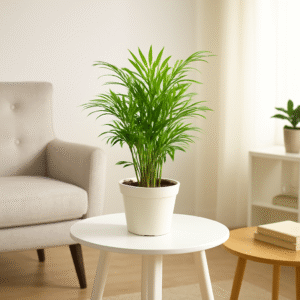
Reviews
There are no reviews yet.